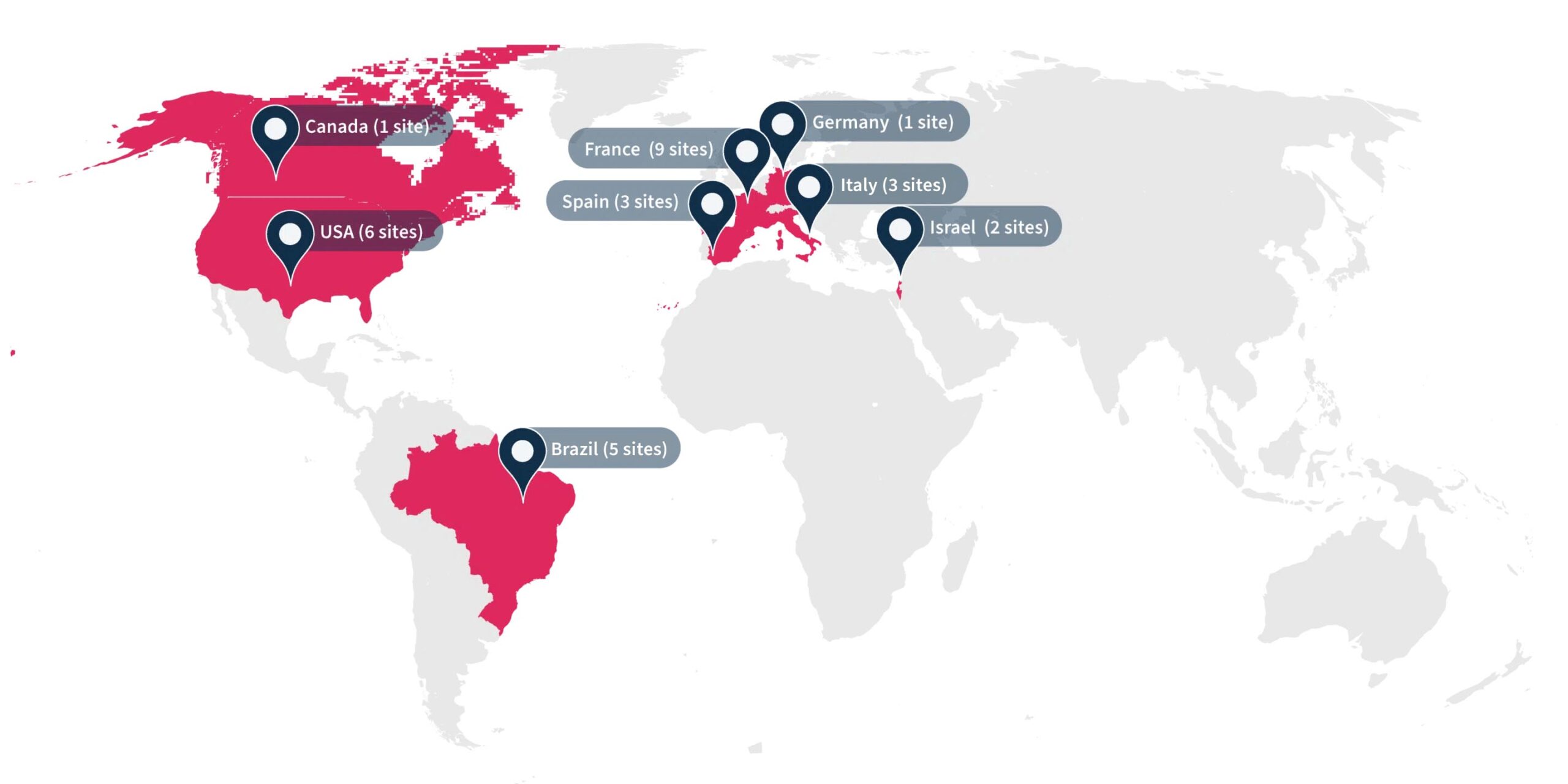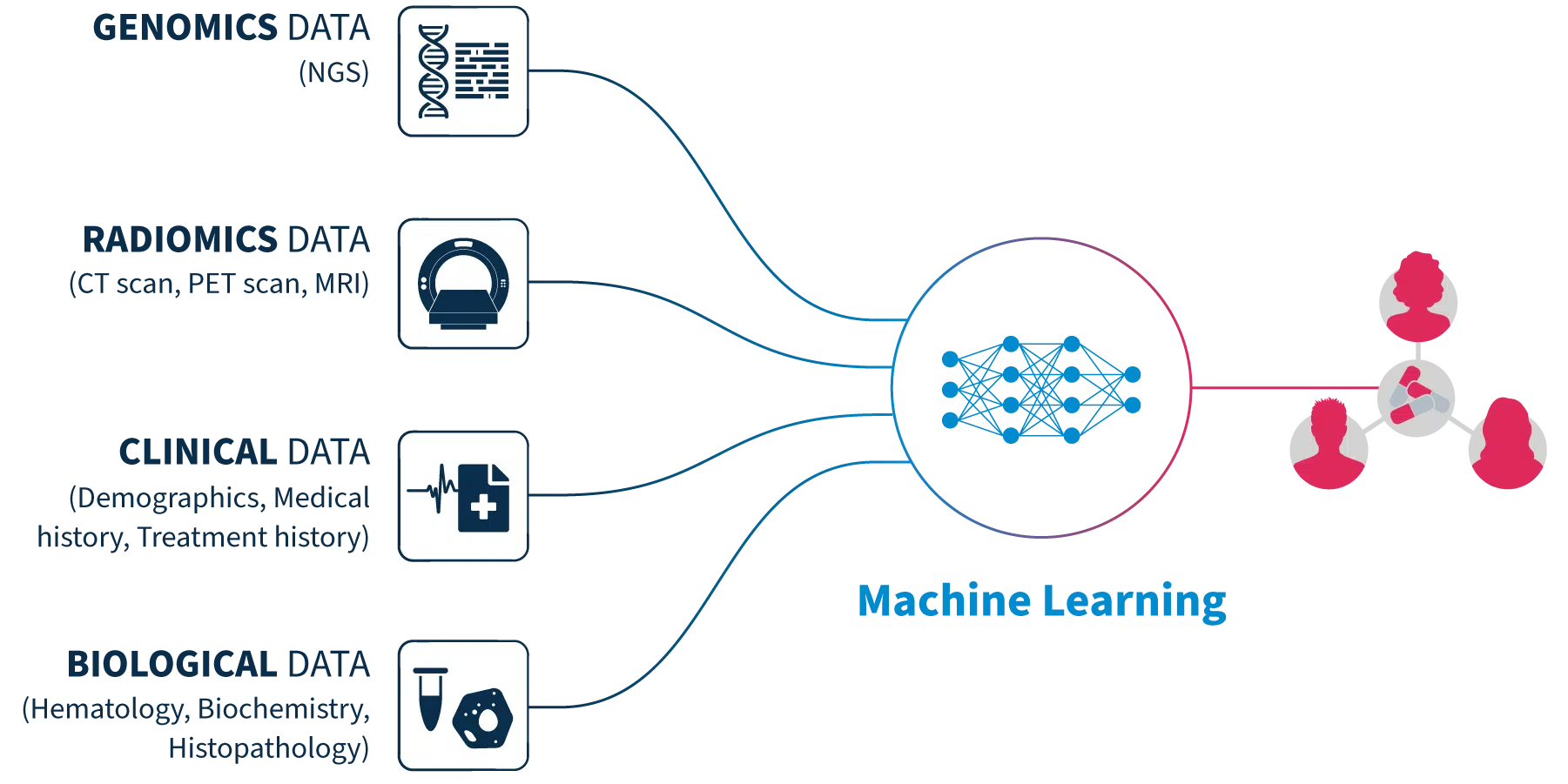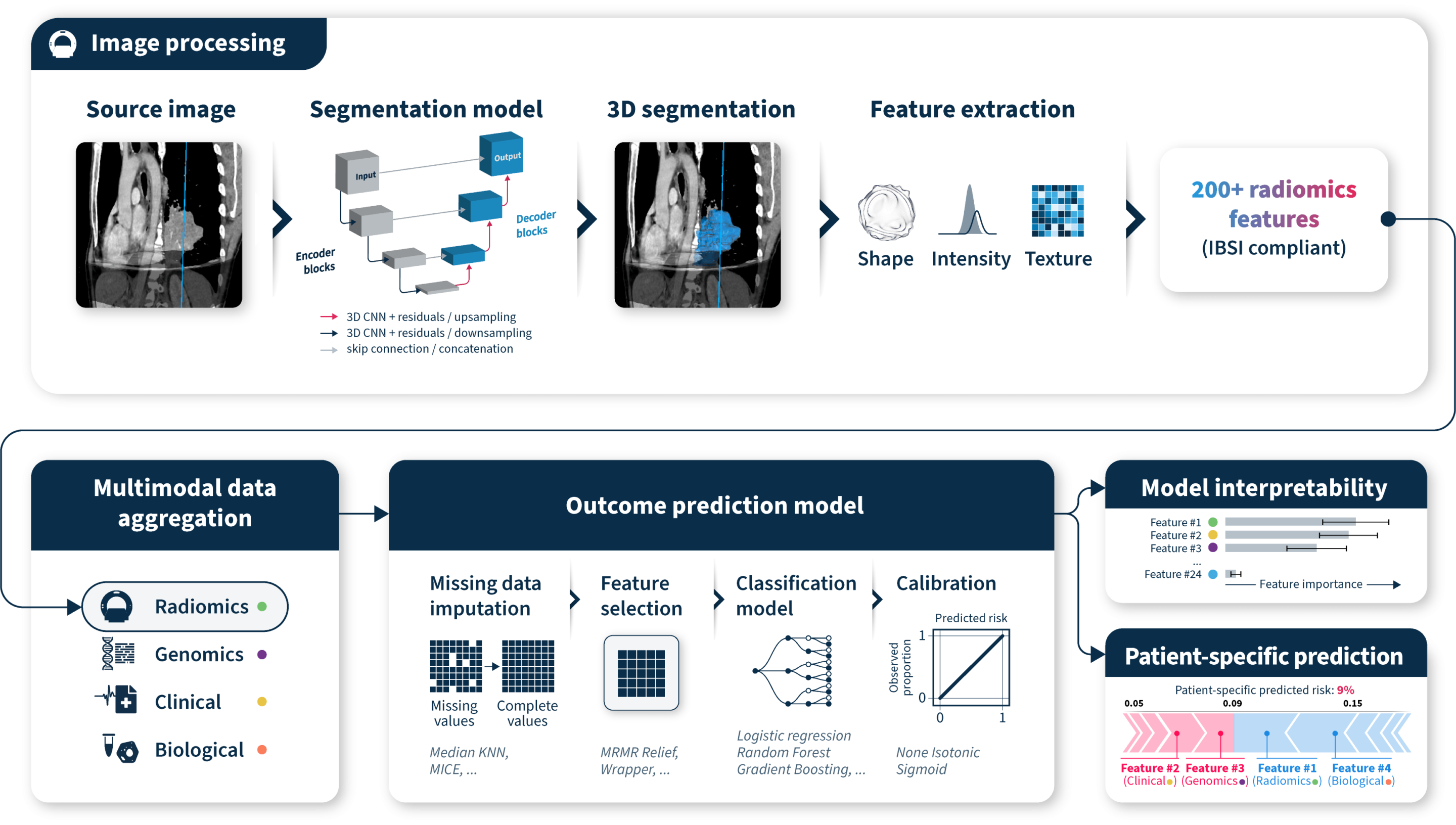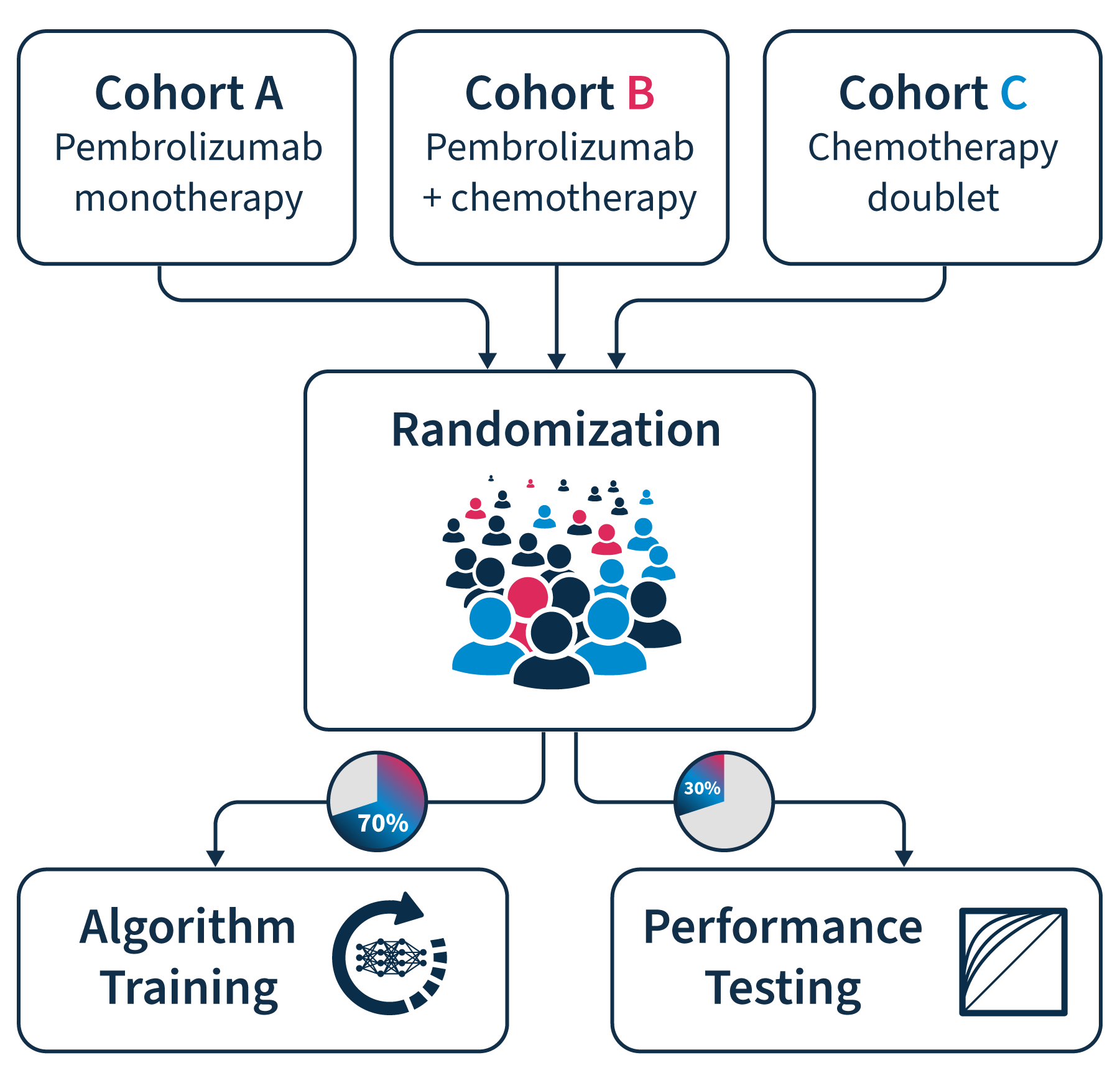Discover the DEEP-Lung-IV study
In today’s intricate healthcare landscape, the evaluation of patient data is often compartmentalized, restricting analysis to one modality at a time. This segmented approach presents a substantial challenge in identifying cohorts of metastatic non-small cell lung cancer (NSCLC) patients. DEEP-Lung-IV represents a global effort to tackle this challenge. It is an international observational Real-world Data (RWD) study focused on unraveling intricate signals linked to treatment responses and prognosis in stage IV NSCLC. By integrating and analyzing clinical, biological, genomics, and radiomics biomarkers, we aim to unlock predictive signatures and precise and invaluable insights from longitudinal study subject data.
DEEP-Lung-IV Overview:
DEEP-Lung-IV in numbers:
∼2,000
Enrolled patients
30
Participating sites
8
Countries

France
- Avicenne Hospital
- CHU Bordeaux
- Ambroise Paré Hospital
- Hospices Civils de Lyon
- CHU de Nantes
- La Pitié Salpêtrière
- Tenon Hospital
- Foch Hospital
- Centre Hospitalier de Toulon
Spain
- Fundacion Jimenez dDiaz
- Puerta De Hierro Hospital
- Instituto Valenciano De Oncologia
Italy
- University Hospital Of Parma
Information Sheet, Informed Consent Form, and Revocation
Information Sheet and Informed Consent Form - Azienda Sanitaria Universitaria Friuli Centrale (ASU FC)
Information Sheet, Informed Consent Form, and Revocation
Information Sheet and Informed Consent Form - Fondazione Policlinico Gemelli
Information Sheet, Informed Consent Form, and Revocation
Information Sheet and Informed Consent Form
Germany
- University Hospital Leipzig
Israel
- Shaare Zadek Medical Center
- Sourasky Medical Center
USA
- Holden Comprehensive Cancer Center at University of Iowa Health Care
- UMASS Memorial Health
- Mayo Clinic
- Roswell Park Comprehensive Cancer Center
- Huntsman Cancer Institute
- Carbone Comprehensive Cancer Center at University of Wisconsin
Canada
- Sunnybrook Health Sciences Centre Toronto
Brazil
- DASA - Hospital Brasilia
- DASA - Hospital de Niteroi
- DASA - Hospital São Lucas
- DASA - Hospital Nove De Julho
- AC Camargo
“This international and multicentric project addresses an important translational research question in a pragmatic way. In the first-line treatment setting for metastatic non-small cell lung cancer (NSCLC), we are now faced with multiple treatment options and yet, the absence of robust predictors of the efficacy of immunotherapy may lead us to prescribe combination therapy to almost all our patients. Despite the abundance of predictive signals, we currently lack the ability to identify which patients will derive maximum benefits from specific treatments. In the DEEP-Lung-IV study, we aim to integrate these individual and discrete signals into a deep learning-based framework to decipher valuable information.”
Prof. Jacques Cadranel
International study coordinator, Department of Pulmonology and Thoracic Oncology, Tenon Hospital, AP-HP and Sorbonne University, Paris, France
In-depth study goals of DEEP-Lung-IV
DEEP-Lung-IV is an observational study combining data from different modalities at multiple time points to:

In this study, we aim to integrate multimodal biomarkers within a unified workflow to enhance the precision of prognosis and optimize first-line treatment planning. Our approach harnesses real-world data to build and train predictive algorithms. Using routine standard-of-care data sources minimizes disruptions and facilitates widespread adoption of the predictive algorithms rather than introducing novel tests. These advanced predictive algorithms will result in new insights into the outcome of different treatments.
Enhancing analysis for stage IV NSCLC
From comprehensive data visualization…
In addition to aggregating biological, clinical, and genomics data, DEEP-Lung-IV also capitalizes on routine medical imaging to source new biomarkers. Imaging is non-invasive, readily available, and repeatable, but it can be difficult to translate test results into quantitative features. By developing a comprehensive visualization environment, DEEP-Lung-IV aims to bridge this gap and generate data sets for the identification of biomarkers.


… to algorithm training and validation
To understand the impact of immunotherapy on NSCLC treatment response and prognosis, the study was split into three cohorts based on treatment type.
Two-thirds of each cohort was randomized into a training cohort, while the remaining one-third served as an independent evaluation set to assess the accuracy and performance. This rigorous methodology ensures an objective and comprehensive evaluation of our predictive algorithms.
Want to know more?
Get in touch with us.
Whether you’re interested in contributing to DEEP-Lung-IV or collaborating with us to develop a new multimodal clinical study, our team is on hand to help.